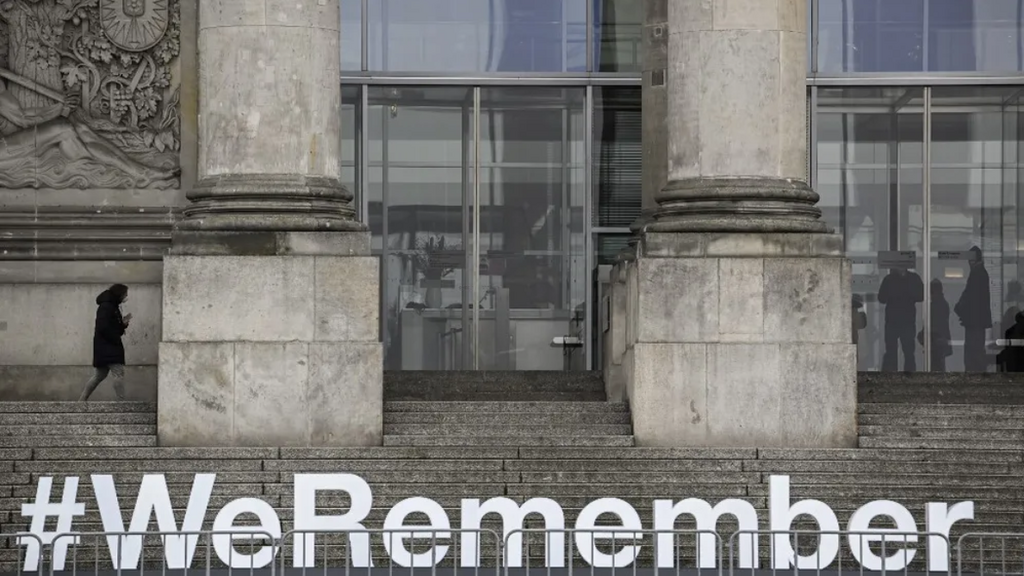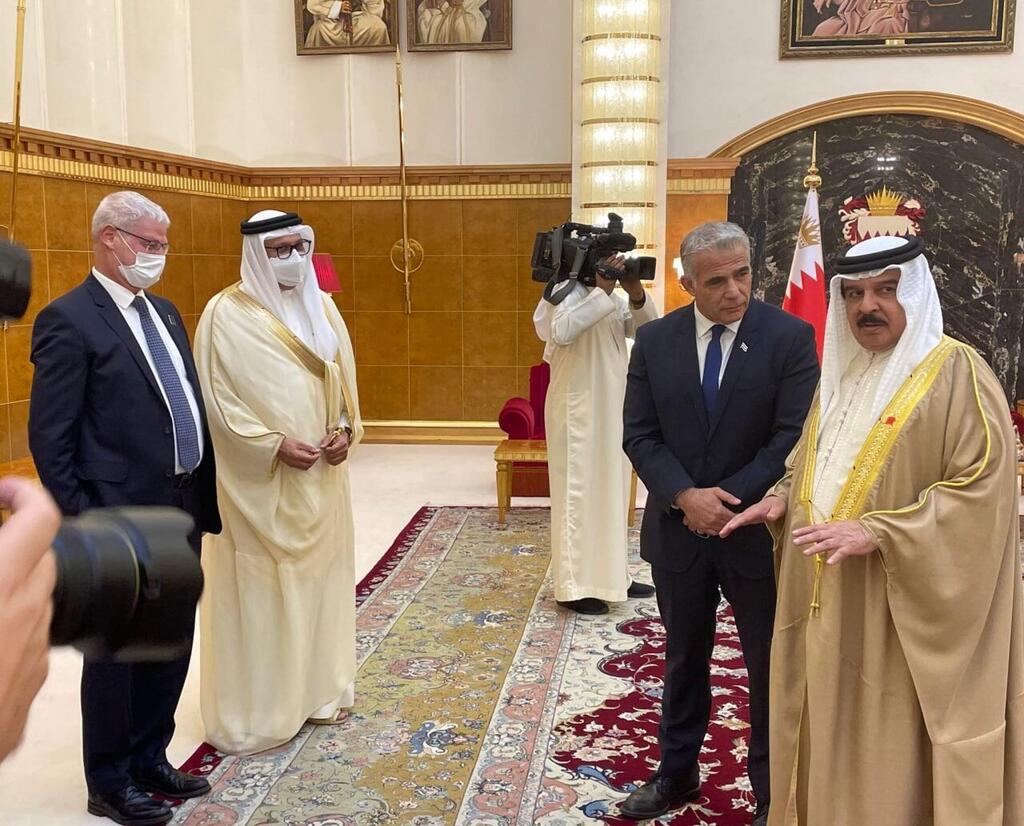Getting your Trinity Audio player ready...
On the eve of International Holocaust Remembrance Day 2023, Israel's Tel Aviv University on Thursday published its annual report entitled "For a Righteous Cause," detailing global initiatives to preserve Jewish heritage, teach about the Holocaust and combat antisemitism and racism in general.
The findings indicate that Holocaust recognition and the teaching of lessons derived from it have expanded, even in countries where Holocaust education was uncommon - such as in Africa and the Middle East. Additionally, many educational, social, and legal initiatives for combating Holocaust denial and antisemitism have been advanced globally.
2 View gallery


The lettering #WeRemember is seen on the stairs leading to the Reichstag building hosting the German lower House of parliament, the Bundestag, in Berlin as part of the ceremonies for the International Holocaust Remembrance Day held on January 27
(Photo: AFP)
"Regretfully, it must be admitted that despite global support for the fight against antisemitism, being a Jew has become less safe almost everywhere in the world. But giving up the struggle is not the solution. We must learn systematically, in a comparative manner, what has been done and what can be improved," said TAU's Prof. Uriya Shavit.
Cyprus
The island country was presented as a model to be emulated, as its government has emphasized teaching the history of the Holocaust throughout its education system. The report notes that Cyprus "does not have an antisemitism problem" as local police have not recorded a single antisemitic attack in recent years.
Additionally, in December 2019, Cyprus became the seventeenth country to adopt the International Holocaust Remembrance Alliance (IHRA) Working Definition of Antisemitism and applied for observer status to the IHRA. Then, three years later, Cyprus adopted the IHRA Working Definition of Holocaust Denial and Distortion.
According to the report, the IHRA definitions, while not legally binding "serve as useful tools to guide education and training, fostering commitment to diversity and confronting racism and discrimination."
Middle East
The report notes that, during 2022, "the Arab World has witnessed a fresh spirit of openness towards Jews and Judaism." This trend was specifically evident in the UAE, Bahrain and Morocco - all countries that normalized ties with Israel as part of the Abraham Accords. However, considerable positive examples were also recorded in Saudi Arabia and Egypt.
2 View gallery


With the Abraham accords normalizing relations between Israel and several Middle Eastern nations, they've become more accepting of Jewish plight
(Photo: Foreign Ministry)
Egypt, since 2014, has changed its policies and discourse toward Jewish people and Judaism - including through civilian initiatives. The report does offer policy recommendations to the North African country, however, including joint governmental and civil initiatives between Israel and Egypt.
African countries
TAU's report states that, although educators in African countries do not ignore the uniqueness of the horrors of the Nazi regime and its allies committed they "borrow terms associated with the Holocaust as a means to deepen the understanding of their own national sufferings and tragedies." For example, in the capital of Senegal, a guide refers to the site from which millions of Africans were sent to slavery as "our Umschlagplatz" - the term used in the Warsaw Ghetto, and in other ghettos, for the areas close to train stations into which Jews were herded and then sent to death camps.
For policy recommendations, the report states that African countries should establish direct contacts with Jewish organizations and work to educate and study together. "On the educational level," the report states, "the questions raised in societies that experienced genocides and other crimes call for mutual deliberations with Jews who have dealt with similar experiences."

